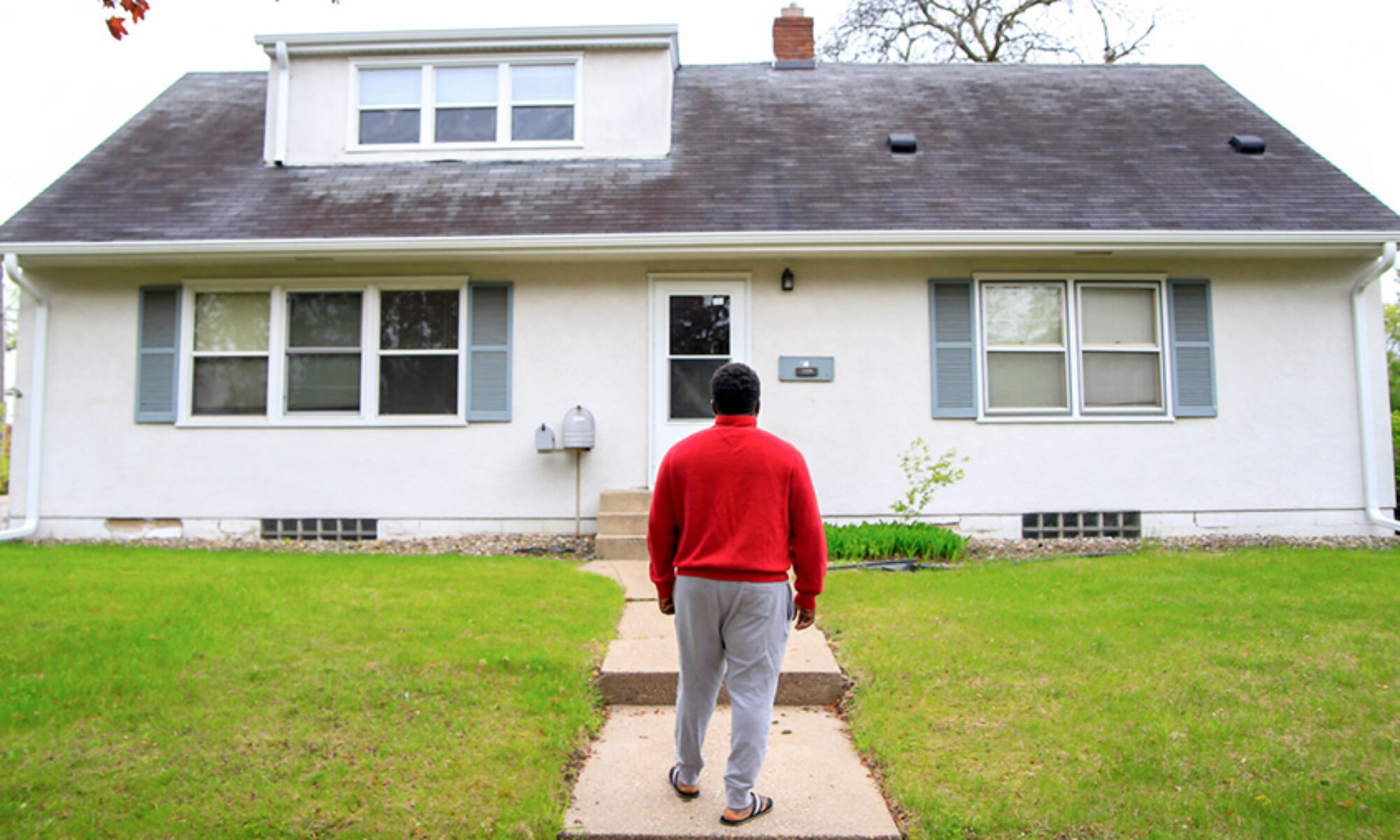
What’s your main role as staff at IAFR Jonathan House?
My title is “Ministry Networker.” I think of myself as a physical therapist, strengthening the connective tissue among the people and organizations that support the survival and recovery of displaced people in the Twin Cities and beyond. So far I’ve been able to do things like connecting with organizations that support our residents’ career goals and using networks to help asylum seekers find safe shelter even when our rooms at Jonathan House are full.
How did you first learn about the plight of asylum-seeking individuals in America?
Like many Americans, I started hearing really upsetting stories on the news a few years ago about families being separated at the border, the inhumane practice of detaining people seeking asylum, and the shrinking number of refugees allowed to resettle in the U.S. Like many people, I heard these stories with grief and a sense of helplessness. I couldn’t listen for long, or too closely. I didn’t know what I could possibly do to help. The situation seemed far away and impossibly big. I suppose that it is the hope of those benefiting from this harm: that people of goodwill will respond as I first did, by becoming overwhelmed and looking away.
How did you first get involved in Jonathan House?
In spring 2019, my longtime friend Jason Lukis (also now on the Jonathan House team) called me with an invitation to join him in exploring a new ministry among asylum seekers. We were both beginners to this work, but the Holy Spirit planted a vision and we began seeking connections. We knew that there was a housing crisis among asylum seekers, and thought we might be called to start a new ministry to address this, but soon learned about Jonathan House and began getting to know the team. In the summer of 2020, we decided to join the International Association for Refugees and become members of the Jonathan House team.
What’s something that everyone can do to help the cause of asylum-seeking individuals in the US?
Firstly, you can push back against harmful narratives in your community and in your own mind. The fact that asylum seekers are so often imprisoned seems normal so long as we believe that they are criminals. In fact, seeking asylum is a human right, and detention and other administrative barriers to asylum are not only unnecessary – they are hurting people.
The most important thing you can offer to an asylum seeker is your friendship. Start from a place of human connection, and allow other support that you offer to flow from that place.
Is there a statistic or fact that has surprised you concerning asylum-seeking individuals?
Based on national news stories, I expected most asylum seekers in the Twin Cities to be Spanish-speaking individuals from Central America. In fact, the asylum-seeking community here is very diverse, with people coming from all over the world, including Africa, Asia and Europe. One need not speak Spanish to get involved in relationships with asylum seekers!
What is something asylum seeking individuals have taught you?
I’ve witnessed the power of faith on a new level. I’ve been a follower of Jesus my whole life, but I am blown away by the way that a relationship with God has sustained some of my asylum-seeking friends through unspeakable difficulties. I feel like they are re-evangelizing me, teaching me how good the Good News really is.
Any other line of work you’re in?
Along with our work at Jonathan House, Jason and I continue to explore ways that our training/experience as pastors and innovators can contribute to a Jesus-shaped movement of hospitality and solidarity among global neighbors. I’m also pursuing training as a spiritual director, based on the conviction that the justice movements of our day require spiritual vigor and a keen ear for the voice of God.
What languages do you speak?
English and a tiny bit of French.
Do you have any hobbies?
Camping, gardening, foraging for wild food, and cooking what I find and grow.




